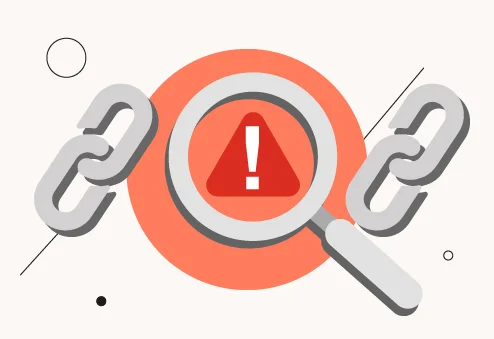The first step of a structured SEO plan is conducting keyword research to identify the right target keywords for optimizing a website’s content. In this phase, relevant keywords are researched, analyzed, and selected based on their search volume, competition, and relevance to the website’s niche.
With an effective keyword research strategy, businesses can understand what keywords their target audience is using to search for products or services, enabling them to optimize their website and content accordingly. By incorporating these keywords strategically, businesses can drive organic traffic, improve their search engine rankings, and increase their chances of attracting more potential customers.
This article will delve into the importance of keyword research and provide actionable tips for conducting it successfully as a crucial first step in a structured SEO plan
Understanding Search Engine Optimization (SEO)

Search engine optimization (SEO) is a fundamental part of any structured SEO plan. Understanding SEO is crucial for improving your website’s visibility and achieving higher rankings on search engine results pages (SERPs). By implementing effective SEO strategies, you can drive more organic traffic to your website, increase brand awareness, and ultimately, boost conversions.
In this section, we will explore the definition and explanation of SEO, as well as the key elements and strategies that are essential for a successful SEO plan.
Definition And Explanation Of Seo
- Seo stands for search engine optimization, which is the practice of optimizing your website and its content to improve its visibility and rankings on search engines like Google.
- The primary goal of SEO is to increase organic (non-paid) traffic to your website by ensuring that it appears on the top of search results for relevant keywords.
- Seo involves various techniques, including keyword research, on-page optimization, link building, and technical optimization, all aimed at making your website more search engine-friendly.
Key Elements And Strategies Of An Effective Seo Plan
To create an effective SEO plan, you need to consider a combination of key elements and strategies:
- Keyword research:
- Identify relevant keywords that your target audience is searching for.
- Use keyword research tools to discover high-volume, low-competition keywords.
- Optimize your website’s content with these keywords to improve its visibility on search engines.
- On-page optimization:
- Optimize your website’s meta tags, including title tags, meta descriptions, and header tags.
- Create well-structured and keyword-rich URLs for your web pages.
- Ensure your content is high-quality, informative, and meets the search intent of users.
- Technical optimization:
- Optimize your website’s loading speed to improve user experience and reduce bounce rates.
- Ensure your website is mobile-friendly and responsive across different devices.
- Implement proper website architecture and structured data markup.
- Link building:
- Build high-quality backlinks from reputable websites within your industry.
- Create engaging and shareable content that naturally attracts backlinks.
- Leverage social media platforms to expand your reach and attract more backlinks.
- User experience (UX):
- Improve website navigation and usability to enhance user experience.
- Optimize your website for easy navigation, fast-loading pages, and mobile responsiveness.
- Provide engaging and informative content that keeps users on your website longer.
By understanding the definition and key strategies of SEO, you can lay the foundation for a structured SEO plan. Remember, SEO is an ongoing process that requires continuous optimization and monitoring to stay ahead of the competition. In the next sections, we will delve deeper into each of these key elements and strategies to help you implement a successful SEO plan that drives results.
Also, Read Why are internal links important for SEO
Broken Link Building Strategy
Conducting Keyword Research

Importance Of Keyword Research In SEO
Keyword research is the first and most crucial step in any structured SEO plan. It lays the foundation for your website’s visibility and ranking in search engine results. By identifying relevant keywords, you can optimize your website content to align with what users are searching for online.
Let’s explore the importance of keyword research in SEO and how it can benefit your website:
- Helps understand user intent: Keyword research allows you to gain insight into what your target audience is interested in and what information they are seeking. By analyzing search terms, you can determine user intent and tailor your content to meet their needs.
- Drives organic traffic: By targeting specific keywords in your website content, you increase the chances of appearing in search engine results for relevant queries. This can drive organic traffic to your site and attract potential customers or readers.
- Enhances website visibility: With effective keyword research, you can identify keywords that have a reasonable search volume and low competition. By strategically incorporating these keywords into your content, you can improve your website’s visibility and increase its chances of ranking higher in search engine results.
- Improves user experience: Keyword research not only benefits search engines but also enhances the overall user experience. By providing content that matches users’ search queries, you can offer them relevant and valuable information that they are seeking, which ultimately leads to higher engagement and conversions.
Tools And Techniques For Identifying Relevant Keywords
To conduct effective keyword research, you need to utilize various tools and techniques to identify relevant keywords that resonate with your target audience:
- Google Keyword Planner: This free tool helps you discover keywords by providing search volume data, competition levels, and related keywords. It’s an excellent starting point for keyword research.
- Competitor analysis: Analyzing the keywords your competitors are ranking for can provide valuable insights. Tools like Semrush or Ahrefs can help identify keywords your competitors are targeting and ranking well for.
- Long-tail keywords: Long-tail keywords are more specific keyword phrases that typically have lower search volume but higher conversion potential. These keywords often indicate higher user intent and can help you attract more qualified traffic.
- Keyword research tools: There are various paid tools available that provide in-depth keyword analysis, competition data, and additional keyword suggestions. Popular tools include Moz keyword explorer, keywordtool.io, and ubersuggest.
Incorporating Targeted Keywords Into Website Content
Once you have identified relevant keywords, it’s essential to incorporate them strategically into your website content. Consider the following best practices:
- Create unique and high-quality content: Develop informative, engaging, and well-structured content that naturally incorporates your targeted keywords.
- Use keywords in meta tags: Include targeted keywords in your page titles, meta descriptions, and header tags (h1, h2, etc. ), as these elements play a crucial role in search engine rankings.
- Sprinkle keywords throughout your content: Place your targeted keywords in the body of your content, but avoid overstuffing. Aim for a natural and reader-friendly flow.
- Optimize images: Use descriptive file names and alt tags that include keywords to optimize your images for search engines.
- Update and refresh your content regularly: As search trends and user preferences change over time, keeping your content up-to-date and relevant will help your website maintain a strong SEO position.
By conducting thorough keyword research and seamlessly incorporating targeted keywords into your website content, you can maximize your website’s visibility, attract organic traffic, and improve user experience. Remember, keyword optimization is an ongoing process that requires monitoring and strategic adjustments to stay ahead in the ever-evolving world of SEO.
On-Page Optimization
On-page optimization is an essential first step in any structured SEO plan. By optimizing various elements on your website, you can improve your chances of ranking higher in search engine results and attracting organic traffic. There are several key aspects of on-page optimization that you need to focus on to maximize your SEO efforts.
Let’s take a look at these elements in detail:
Optimizing Meta Tags, Headings, And URLs:
- Meta tags: Include relevant keywords in your meta title and description tags to provide search engines and users with a concise summary of your page’s content.
- Headings: Use clear and descriptive headings (h1, h2, h3) to organize your content and make it easier for both search engines and readers to understand the structure of your page.
- Urls: Craft SEO-friendly, readable URLs that incorporate keywords related to your content. Avoid using long, arbitrary strings of characters.
Creating High-Quality And Engaging Content:
- Research: Conduct thorough research to understand the needs and interests of your target audience. Identify relevant keywords and topics to ensure your content resonates with their search queries.
- Unique and valuable: Produce original and informative content that provides value to your readers. Avoid duplicating content from other sources, as this can harm your SEO efforts.
- Readability: Write in a clear and concise manner, using short sentences and paragraphs to improve readability. Utilize headings, bullet points, and other formatting techniques to enhance the user experience.
Improving Website Speed And Mobile Responsiveness:
- Page load speed: Optimize your website’s performance to provide a seamless user experience. Minimize file sizes, enable caching, and remove unnecessary scripts or plugins that could slow down your site.
- Mobile responsiveness: Ensure your website is fully responsive and displays correctly on all devices, including smartphones and tablets. With the increasing number of mobile users, mobile-friendly websites are crucial for SEO success.
By paying attention to on-page optimization, you can set a strong foundation for your SEO strategy. Remember, while search engine algorithms are complex, focusing on these fundamental elements can significantly impact your website’s visibility and rankings. So start by optimizing your meta tags, headings, and URLs, creating engaging content, and enhancing website speed and mobile responsiveness.
These efforts will go a long way in improving your website’s overall SEO performance.
Off-Page Optimization

Off-page optimization is a crucial aspect of a structured SEO plan. It involves activities that take place outside of your website but still contribute to its search engine rankings and visibility. Off-page optimization aims to improve your website’s authority, relevance, and popularity in the eyes of search engines.
Two key strategies for off-page optimization include building high-quality backlinks and engaging in social media promotion. Additionally, building a strong online presence through directory listings is also essential. Let’s explore each of these strategies in more detail.
Building High-Quality Backlinks:
- Backlinks are links to your website from other reputable websites.
- High-quality backlinks can significantly improve your website’s search engine rankings.
- Focus on acquiring backlinks from authoritative websites within your industry.
- Guest blogging, influencer outreach, and content marketing are effective ways to build backlinks.
- Avoid low-quality or spammy backlinks, as they can harm your SEO efforts.
Engaging In Social Media Promotion:
- Social media platforms offer excellent opportunities to promote your content and engage with your target audience.
- Regularly share valuable and relevant content on social media channels to attract users to your website.
- Encourage social sharing and engagement by adding social share buttons to your website.
- Engage with your followers, respond to comments and questions, and participate in relevant conversations.
- Consider running paid social media campaigns to expand your reach and drive targeted traffic to your website.
Building A Strong Online Presence Through Directory Listings:
- Online directories provide a valuable opportunity to increase your online visibility and credibility.
- Submit your business information to relevant directories such as Google My Business, Yelp, and industry-specific directories.
- Ensure that your business information is accurate, consistent, and up-to-date across all directories.
- Encourage customers to leave reviews and ratings on directory listings to build trust and credibility.
- Regularly monitor your online listings and address any inaccuracies or negative feedback promptly.
By implementing these off-page optimization strategies as a part of your structured SEO plan, you can improve your website’s visibility, attract more traffic, and increase your search engine rankings. Remember to focus on building high-quality backlinks, engaging in social media promotion, and building a strong online presence through directory listings to enhance your overall SEO efforts.
Monitoring And Analytics

Monitoring and analytics: the first step in your structured SEO plan
Monitoring and analyzing the performance of your SEO efforts is crucial to the success of your website. By keeping tabs on how your site is performing in search engine rankings and understanding the data behind it, you can make informed decisions and take strategic actions to improve your SEO strategy.
This is why monitoring and analytics should be the first step in any structured SEO plan. Let’s delve into the importance of tracking SEO performance, the tools you can utilize, and how to analyze the data to drive improvements.
Importance Of Tracking Seo Performance:
- Tracking your SEO performance allows you to gauge the effectiveness of your optimization efforts.
- It helps you understand how your website is ranking in search engine result pages (SERPs).
- By monitoring your SEO performance, you can identify any issues or areas for improvement.
- Tracking helps you measure the impact of any changes you make to your SEO strategy.
- It enables you to track the success of your keywords and identify opportunities for optimization.
Utilizing Google Analytics And Other Tools:
- Google Analytics is a powerful free tool that provides valuable insights into your website’s performance.
- It offers detailed information about your website visitors, their behavior, and traffic sources.
- Google Search Console is another essential tool that provides data on how your site appears in search results and helps identify indexing issues.
- Other tools, such as Semrush and Moz, provide additional data and insights to enhance your SEO monitoring and analysis.
Analyzing Data And Making Improvements:
- Once you have gathered the data from tools like Google Analytics, it’s essential to analyze it effectively.
- Look for patterns, trends, and outliers in your data that can give you insights into your SEO performance.
- Identify which pages are performing well and which ones may need improvement.
- Pay attention to metrics like organic traffic, bounce rate, time on page, and conversion rates.
- Use the data to inform your SEO strategy and make data-driven improvements to your website.
By prioritizing monitoring and analytics as the first step in your structured SEO plan, you can gain valuable insights into your website’s performance and make informed decisions to improve your SEO strategy. Remember, tracking your SEO performance, utilizing tools like Google Analytics, and analyzing the data are key components to driving continuous improvement and achieving better search engine rankings.
So, start monitoring and analyzing today to lay a strong foundation for your SEO success.
Frequently Asked Questions On What Should Be The First Step Of A Structured SEO Plan?
Why Is Keyword Research Important In Seo Planning?
Keyword research is important in SEO planning because it helps you understand the language your audience uses and optimize your content accordingly.
How Can Keyword Research Impact A Website’s Search Visibility?
Keyword research can impact a website’s search visibility by helping you optimize your content for the right keywords, improving your chances of ranking higher in search engine results.
Conclusion
To begin a structured SEO plan, conducting keyword research is essential. By identifying the keywords and phrases your target audience is searching for, you can optimize your website’s content to improve visibility in search engine results. This initial step sets the foundation for an effective SEO strategy.
Once you have a list of relevant keywords, create high-quality, engaging content that incorporates them naturally. Remember to optimize title tags, meta descriptions, and headers for each webpage, making it easier for search engines to understand your content. Additionally, optimizing your website’s structure and navigation will enhance user experience and encourage search engine crawlers to easily index your site.
Regularly monitor and analyze your website’s performance using tools like Google Analytics, and make necessary adjustments to your SEO plan. By consistently implementing these steps, you can enhance your website’s visibility, attract more qualified traffic, and ultimately boost your online presence and business success.






